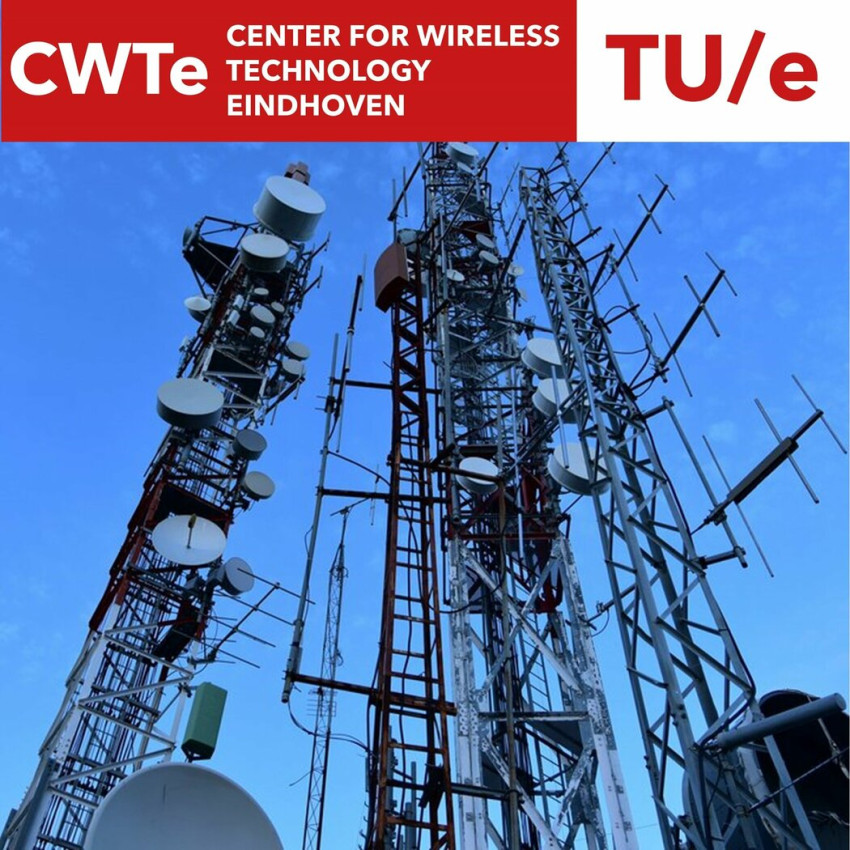
Please be invited for the 4th November 2025 edition of the Center for Wireless Technology (CWTe) bi-monthly colloquium webinar.
CWTe will have two speakers in this colloquium/webinar on very interesting wireless topics:
- Nirvana Meratnia (TU/e Math & Computer Science) – Domain generalization in WIFI-CSI-based gesture recognition: Road blocks and future directions
- Carlos Rubio García (TU/e Electrical Engineering) - Network Protocols for Quantum-Resistant Communication
Abstracts and presenters’ bios:
Domain generalization in WIFI-CSI-based gesture recognition: Road blocks and future directions
Nirvana Meratnia (TU/e Math & Computer Science)
Abstract: Wireless sensing using WiFi-CSI and/or mm-Wave has gained popularity in different applications. Its unobtrusive sensing nature has made it a popular technology for activity and gesture recognition. Wireless sensing measures the disturbances these activities and gestures cause on the signal travelling between the transmitter and receiver. The integration of this sensing technology with AI to analyse these disturbances to infer the actual activity and/or gesture performed has opened up many new opportunities. However, since these disturbances are not solely dependent of the phenomena of interest and are heavily influenced by sensing configuration and the environmental factors, domain generalization in presence of all (often unknown) influencing factors becomes a challenge. In this presentation, we look into some of the current roadblocks of domain generalization of AI-based approaches for WiFi-CSI based gesture recognition and how they possibly can be overcome.
Biography: Nirvana Meratnia is full Professor of Pervasive Computing and head of Interconnected Resource-aware Intelligent Systems at the department of Mathematics and Computer Science at Eindhoven University of Technology. Her research interests include data-driven wireless sensing/networking, sustainable computing, and edge AI.
Network Protocols for Quantum-Resistant Communication
Carlos Rubio García (TU/e)
Abstract: Information security is an increasingly critical challenge in the digital age, especially with the advent of quantum computing, which threatens to break classical cryptography.
At present, there are two alternatives capable of addressing this problem: post-quantum cryptography (PQC) and quantum key distribution (QKD). Normally, both mechanisms are considered independently, and choosing one usually means discarding the other. In this context, mechanisms that manage to combine these two approaches with classical cryptography—known as “triple-hybrids”—emerge as a promising solution for the future. This talk addresses the development of such triple-hybrid systems, the challenges involved in their implementation, the concept of “crypto-agility” and how to move toward a future where we no longer need to already choose today between PQC or QKD, but adopt solutions that can seamlessly integrate both.
Biography: Carlos Rubio García was born in Seville, Spain. In 2019, he obtained his two Bachelor's degrees in Information Technology and Information Systems from Newman University (Wichita, Kansas, USA). In 2021, he earned a Master's degree in Intelligent Systems for Energy and Transport, specializing in Smart Cities, from the University of Seville. That same year, he began his academic career as a PhD candidate in the Quantum Terahertz Systems Group within the Department of Electrical Engineering at Eindhoven University of Technology (TU/e), where he is continuing his research as a post-doctoral researcher. His doctoral research was carried out within the framework of the ITN IoTalentum project, funded by the Marie Skłodowska-Curie Action under the European Union’s Horizon 2020 program. His main areas of expertise include quantum communications, post-quantum cryptography, quantum key distribution (QKD), and network security protocols.
MS Teams linkMicrosoft Teams
Meeting ID: 329 115 780 704
Passcode: RQ3hc949
Dial in by phone
+31 20 899 9368,,678460621# Netherlands, Amsterdam
Phone conference ID: 678 460 621#
For organizers: Meeting options | Reset dial-in PIN
